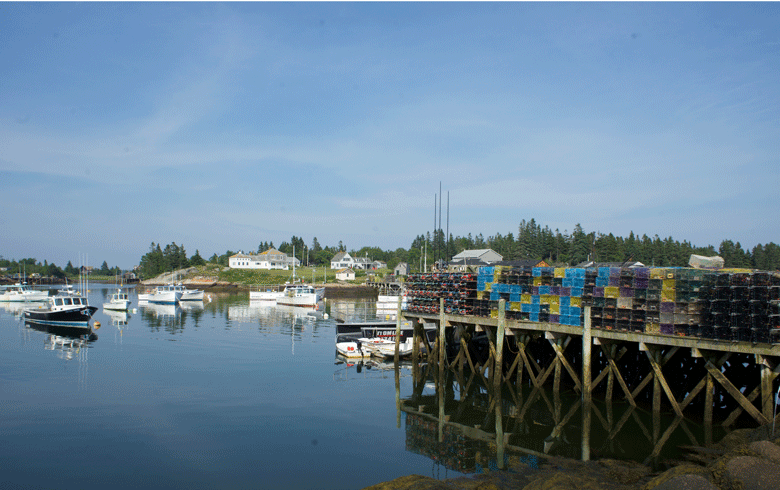Most Mainers understand and appreciate the need to protect the working waterfront, those access points and infrastructure necessary to make a living on the water. But how, exactly, does it get threatened and how does it disappear?
Imagine you’re a clam harvester who has an agreement with a local person or long-time summer resident to cross their land to get to a mudflat. When that person sells their home, it might be purchased by someone from out of town who does not understand the economic and cultural importance of clam harvesting. Maybe they simply are uncomfortable with strangers regularly crossing their property, as many of us might be.
Either way, you are no longer able to access that mudflat by land and must instead purchase a boat, find a public launch, and wait for the tides to get to this productive mudflat.
In Cape Elizabeth, a commercial-only access is being turned into a public one.
As someone who examined challenges facing the soft-shell clam industry in Maine as a part of my doctoral dissertation, this story was told to me many times by harvesters along the coast. Despite Maine’s thousands of miles of coastline, there are only about 20 miles of working waterfront and it is shrinking. As locals move away from the coast due to rising costs, water access and infrastructure go with it, as can the culture and inherent value of the working waterfront itself.

For other fisheries and marine-dependent businesses, such as lobstering and aquaculture, wharfs may be converted for private uses. Though not always zoned commercial, many fishers have private wharfs in front of their homes. Sales of these desirable waterfront properties are particularly appealing to people who move to or summer in Maine for the lifestyle amenities they offer.
In Cape Elizabeth, a commercial-only access is being turned into a public one. Because wild harvesters, ocean farmers, and emergency service responders must trailer and launch their skiffs each time they go out, making a commercial access public in a highly congested area could prevent them getting in the water, particularly in summer.
In other places, waterfront properties are transformed into hotels or restaurants. Small owner-operator businesses, such as fishing, aquaculture, and boat tours, typically lack the funding to purchase these properties and must scramble to find other options.
One way to protect access is to establish a working waterfront covenant that ensures access to a property in perpetuity, regardless of sale or change in ownership.
The Land for Maine’s Future and Maine Coastal Program fund projects to protect and preserve working waterfront properties through an annual grant program. This program pays landowners for the right of access and restricts development to keep the property as working waterfront. A covenant is held by the state and gives it the right of first refusal to the property when it eventually sells and ensures that the property cannot sell above the appraisal value, keeping it more affordable for those who need access to the water.
Despite these funding opportunities, there is no single entity charged with the preservation of this critical asset, such as a land trust would do. My time in Maine has taught me that the people and businesses who depend on this access are incredibly resilient. But the fact remains that while they may find alternatives, the more working waterfront that is lost, the harder it will be to find alternatives.
The Island Institute is dedicating time and resources to help preserve and maintain this critical resource. Through this work we hope to keep Maine’s marine economy productive and resilient to inevitable change so that future generations may come to know the same iconic images that I hold dear.
To learn more about working waterfront challenges, seek our 2021 report produced by Merritt Carey at: www.islandinstitute.org/wp-content/uploads/2021/11/WWF-Report_web.pdf.
Molly Miller is a community development officer with the Island Institute, publisher of The Working Waterfront, focusing on strategies for the long-term, sustainable protection of Maine’s critical working waterfronts. She may be reached at mmiller@islandinstitute.org.





